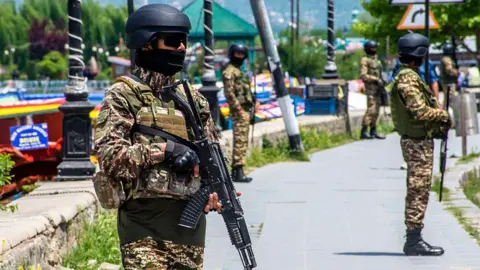Asim Munir: Leadership, Controversy, and Regional Impact

Introduction
General Asim Munir, the Chief of Army Staff in Pakistan, has become a central figure in the country's political and military landscape. Asim Munir's statements and leadership decisions have not only shaped the narrative within Pakistan, but also heightened regional tensions, especially with India. Recent events and remarks have turned global attention toward his actions and motives. In this article, we will dive deep into his background, his influence on Pakistan-India relations, and the controversies surrounding his tenure as army chief.
Who Is Asim Munir?
Asim Munir rose through the ranks to become one of the most influential men in Pakistan. He joined the army through the Officers Training School in Mangla in 1986. Munir's early service saw him gaining the prestigious Sword of Honour and commanding troops along sensitive borders. His diverse experience includes stints in military intelligence and international postings, strengthening his strategic insight. Munir took over as Pakistan's Chief of Army Staff in November 2022, stepping into the role amidst a backdrop of political upheaval and public scrutiny of the military's role in governance.
Recent Remarks and Rising Tensions
In April 2025, Asim Munir made remarks about Kashmir that have stirred significant controversy. Calling Kashmir Pakistan's "jugular vein," he reinforced the country's firm stance on the disputed territory. His speech, delivered just days before a tragic militant attack in Indian-administered Kashmir, has been seen as inflammatory by many in India. The incident reignited the longstanding debate over Kashmir and underscored Munir's central role in Pakistan's military strategy. You can learn more about these developments in BBC's in-depth analysis.
Social Media Buzz and Speculation
Amid the diplomatic storm, rumors about Asim Munir's whereabouts gained traction on social media. Some unverified reports even suggested he had fled Pakistan following the Pahalgam attack. The hashtag #MunirOut trended, fueling speculation. However, the Prime Minister's Office released a photograph of Munir at an official event, countering these claims. Despite this, questions about the military's transparency and leadership persist in the public sphere. For more on the social media reactions and official statements, refer to NDTV's coverage.
The Broader Impact of Asim Munir's Leadership
Asim Munir's leadership style stands in contrast to his predecessor, Qamar Javed Bajwa. While Bajwa favored diplomacy and regional stability, Munir's approach is viewed as more direct and assertive. His decisions have shaped Pakistan's stance at home and abroad, impacting counter-terrorism efforts and civil-military relations. The response to political protests and the handling of opposition figures further demonstrate his uncompromising approach to consolidating military authority.
Conclusion
Asim Munir is at the center of Pakistan's evolving narrative—both as a military leader and a powerful political actor. His statements on Kashmir, response to national crises, and the controversies that followed highlight the complex dynamics of leadership in a nuclear-armed region. As regional events continue to unfold, Asim Munir’s decisions will be watched closely—not just within Pakistan, but around the world.